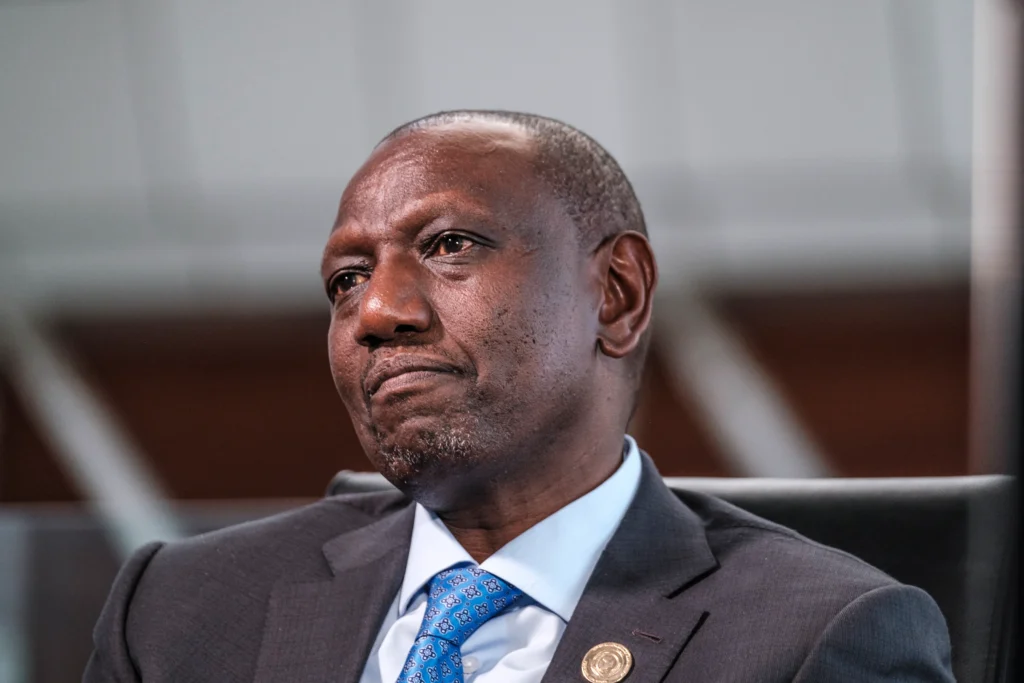President William Ruto has officially signed the Finance Bill 2025 into law, only a few days after it received approval from the National Assembly.
The signing took place during a short but significant ceremony held at State House, Nairobi, on Thursday. The event was attended by key parliamentary leaders representing both the Majority and Minority sides.
This move by the President comes at a sensitive time, as the country has recently witnessed major protests led by the Gen Z generation.
These demonstrations, which took place in parts of Nairobi and brought sections of the city to a halt, were organized in remembrance of last year’s powerful protests against the Finance Bill 2024.
Those earlier protests had forced the President to withdraw the bill following overwhelming public resistance.
The Finance Bill 2025 introduces a range of financial and tax measures that the government believes will help enhance the business environment and improve tax collection systems.
It proposes several changes to existing laws, including amendments to the Income Tax Act, Value Added Tax (VAT) Act, Tax Procedures Act, Miscellaneous Fees and Levies Act, Stamp Duty Act, and the Excise Duty Act.
One of the most notable changes in the new law is the removal of subsections (4) to (9A) of Section 8 of the Income Tax Act.
These sections previously defined how pensions and retirement benefits were taxed, whether under private pension schemes or the National Social Security Fund (NSSF).
With these sections now repealed, Kenyans will no longer face tax deductions on their gratuity upon retirement, a change expected to benefit many retirees.
Another positive development in the Finance Bill is the expanded access to mortgage tax relief. Previously, only those who purchased a house could qualify.
However, under the new law, Kenyans who build homes through SACCOs or personal loans will now also be eligible, regardless of whether they buy or build.
The Bill also brings relief to salaried individuals by maintaining the current Pay As You Earn (PAYE) tax bands. No new PAYE bands will be introduced, which means that workers will not face higher income taxes.
Additionally, an earlier proposal that would have allowed the taxman easier access to personal data has been dropped, following opposition from Members of Parliament.
To ease the cost of living, the Bill introduces zero-rated tax reforms on essential goods, making basic commodities more affordable for ordinary Kenyans. It also offers corporate tax incentives to stimulate growth in strategic economic sectors.
Alongside the Finance Bill, President Ruto also signed the Appropriations Bill 2025 into law. This law gives the government the legal authority to spend public money for the upcoming financial year.
Under this legislation, the National Treasury has been granted permission to withdraw Ksh1.88 trillion from the Consolidated Fund. These funds will be used to run government operations and services until June 30, 2026.
Furthermore, Ministries, Departments, and Agencies (MDAs) have been allowed to spend Ksh671.99 billion from their own internally generated revenues, known as Appropriation-in-Aid (AIA).
This amount has been approved by Parliament to help MDAs support important government projects and public services in different sectors.
The Appropriations Bill also formalizes the use of the approved Estimates of Revenue and Expenditure for the 2025/2026 financial year.
According to the Estimates, Ksh1.805 trillion will go towards recurrent spending—such as salaries and running government institutions—while Ksh744.52 billion has been allocated for development projects aimed at improving infrastructure and other critical areas.
Together, the Finance Bill and Appropriations Bill set the legal and financial foundation for the government to implement its budget plans, deliver public services, and promote economic growth in the coming year.
Join Gen Z New WhatsApp Channel #JusticeforAlbertOjwang To Stay Updated On time
https://whatsapp.com/channel/0029VaWT5gSGufImU8R0DO30


